A discussion on the influence of ideologies on fundamental freedoms in society opened the annual meeting of the Spanish Evangelical Alliance.
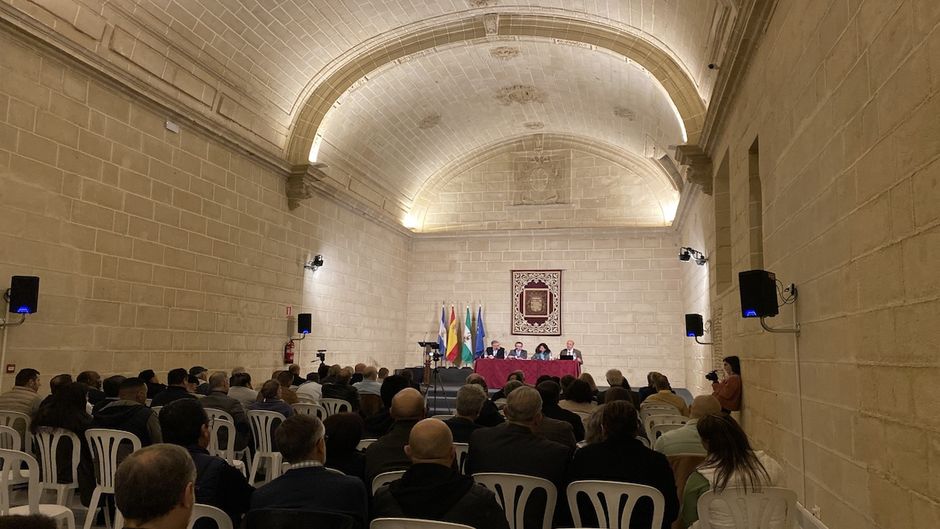 The Cloisters of Santo Domingo building hosted the first day of Idea 2024, in Jerez de la Frontera, 16 February 2024. / Daniel Hofkamp.
The Cloisters of Santo Domingo building hosted the first day of Idea 2024, in Jerez de la Frontera, 16 February 2024. / Daniel Hofkamp.
Idea 2024, the annual meeting organised by the Spanish Evangelical Alliance, was held in the southern Spanish city of Jerez de la Frontera from 16-18 February.
It began with a a roundtable analysing the influence of ideologies on the state of fundamental freedoms in the country.
The president of the Alliance, Marcos Zapata, opened the event, attended by around 120 people, expressing his gratitude to the local authorities for providing the facilities. The motivation behind Idea, he said, is “to generate ideas, since Protestant thought in the past turned society upside down, economically, politically and theologically”.
“Those principles are still relevant today and we believe it is necessary to rekindle them by taking into account the opinions of more people, even if they are different. Something different is not bad but can make a positive contribution”, Zapata continued.
The roundtable was made up of the professor of Philosophy of Law at the University of Cádiz, Manuel Jesús Rodríguez, the city councillor of the PSOE party (Socialists) in Jerez, Ana Hérica Ramos, and the secretary general of the Spanish Evangelical Alliance, Xesús Manuel Suárez. The conversation was moderated by the journalist and director of Evangelical Focus, Joel Forster.
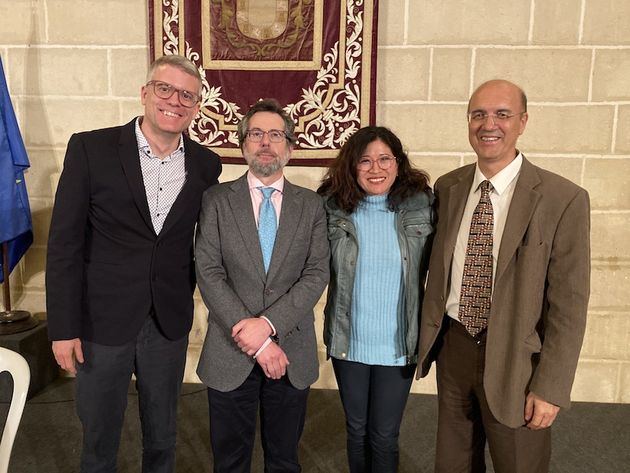
Professor Rodriguez began his reflection by addressing what he sees as “a paradoxical situation in Western culture in terms of the rights of the person”.
“It seems that one cannot state clearly what it is an objective truth. Human rights mmust be legally defended, but it is difficult for us to fight for something that we cannot justify”, he said.
An example the professor of Philosophy of Law mentioned, was if a society can protect human rights if “we are not clear about what the dignity of the person means”.
In her turn, the politician Ana Hérica Ramos said it was worrying that “society has become structured in a series of ideologies, where increasingly polarised blocs are framed, as if freedom and equality were antonymous things”.
“Respect is the instrument of dialogue. It is the ability to listen and understand in order to be listened to and understood. There are different frameworks: living side by side, which is not bad but incomplete, and coexistence, which is the ideal. Polarisation leads us to extremes”, she argued.
Addressing the issue from a historical perspective and highlighting the value of Protestantism, Xesús Manuel Suárez of the Evangelical Alliance said that in nations such as the Netherlands and the United Kingdom, “political freedoms were built by reading the Bible and applying it”.
Suárez, a medical doctor and former politician, lamented that “in our society there is a generalised ignorance of Protestantism. We cannot understand the birth of the Western system of freedoms without it, we must look at Protestantism's committed way of reading the Bible”, he underlined.
Suárez stressed that “Protestants build freedoms from a position of contestation, from protest. We are heretics, we do not accept dogmas or authoritarianism. We learned this from people in the Bible such as Naboth, Nathan, Jeremiah, or Stephen”.
“As long as there is a single Protestant in a society who clings to his or her freedom of conscience, no authoritarian power will be safe”, the leader of the Evangelical Alliance said.
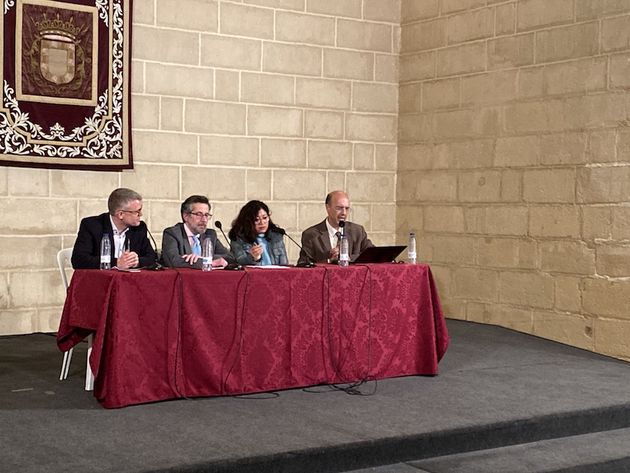
[photo_footer] A moment during the roundtable of Idea 2024. / Daniel Hofkamp. [/photo_footer]
The Bible was key in the developing fundamental rights, it “produces freedom, social and political. It must be read. The problem is that people don't read it” in Spain.
Another important point debated at the conference was the state and the value of democracy.
Jerez's city councillor Ana Hérica Ramos pointed out that “in the dance of ideologies we find liberals, social democrats, conservatives who defend tradition and progressives”, but also “the extremes are gaining ground, and that is worrying”.
“There can be no freedom if there is inequality. We must work on a system of coexistence as the Spanish democratic system, in which there are different and confrontational blocs, and even structured by the fourth power, which is the media”.
For law expert Rodríguez, “it seems that the justification of democracy is linked to the non-existence of a truth. But if so, where is the justification that allows us to prefer democracy to tyranny? We cannot defend democracy if we claim that truth does not exist. Democracy implies an initial truth”, he insisted
Meanwhile, Suárez mentioned some measures that he believes could help to strengthen democracies, such as accountability, more civil participation, a healthier division of powers and a “greater tolerance, not based on the relativism of values, but on their strengthening”.
Referring to new ideologies, Suárez said evangelical Christians “are concerned about the return of new catechisms that tell us what we should believe, 'holy orthodoxies', to the persecution of dissent, and we call on society to protest against that”.
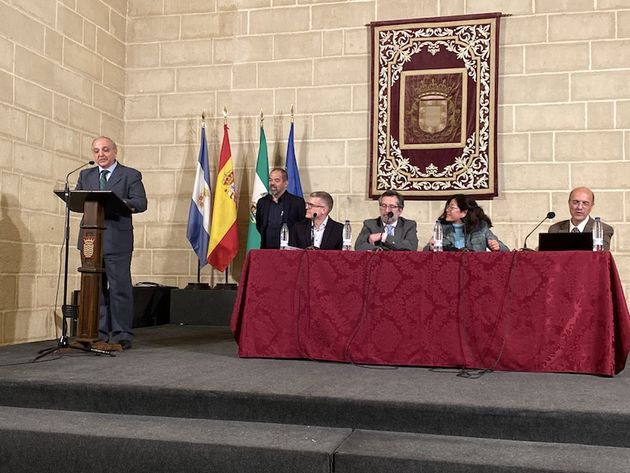
[photo_footer] The President of the Evangelical Council of Andalusia, José Manuel Marín. / Daniel Hofkamp. [/photo_footer]
Suárez also pointed out that “other freedoms depend on freedom of conscience". “Protestants build freedoms rooted in the Bible. From Jesus we learned to value the person above the law, because each of us has been the Samaritan woman, Bartimaeus, or Zacchaeus”.
The event concluded with the greetings of the coordinator of the Fraternity of Pastors of Jerez de la Frontera, Antonio Bonilla, and the president of the Andalusian Evangelical Council, José Manuel Marín.
The mayoress of Jerez de la Frontera, María José García-Pelayo, also addressed the public, thanking the Evangelical Alliance and the Fraternity of Pastors for choosing Jerez for the conference.
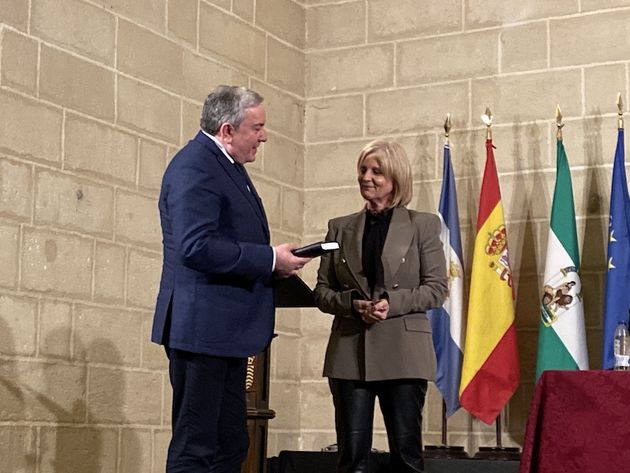
[photo_footer] The president of the Spanish Evangelical Alliance, Marcos Zapata, presents a translation of the Reina Valera 2020 Bible to the mayoress of Jerez de la Frontera, María José García-Pelayo. / Daniel Hofkamp. [/photo_footer]
Mayoress García-Pelayo concluded: “I feel like one of you [evangelical Chrisitans] because when I am with you, I feel at home. I feel protected. I know that you always pray for our city. I hope you will continue to pray for me as mayoress. It is an honour for Jerez to be celebrating this day. Above ideology, there are values”.
[analysis]
[title]One more year[/title]
[photo][/photo]
[text]At Evangelical Focus, we have a sustainability challenge ahead. We invite you to join those across Europe and beyond who are committed with our mission. Together, we will ensure the continuity of Evangelical Focus and Protestante Digital (Spanish) in 2024.
Learn all about our #OneMoreYearEF campaign here (English).
[/text][/analysis]

Las opiniones vertidas por nuestros colaboradores se realizan a nivel personal, pudiendo coincidir o no con la postura de la dirección de Protestante Digital.
Si quieres comentar o